Annual Report 2022: HIIT Fellows
Please find below presentations of the HIIT Postdoctoral Fellows and HIIT Research Fellows.
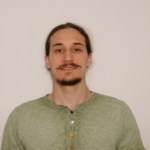
Massimo Equi
HIIT Postdoctoral Fellow
Dr. Massimo Equi obtained his master’s degree from the University of Pisa (Italy) in 2018, after which he moved to Finland, where he received his PhD from the University of Helsinki in 2022, under the supervision of Professor Veli Mäkinen and Associate Professor Alexandru Tomescu. He shortly visited the university of Pisa in 2022, where he has an active collaboration with Professor Roberto Grossi that carries on since the master studies. In 2022, he joined the research group of Professor Jukka Nurminen at the University of Helsinki as a HIIT postdoctoral researcher.
Massimo’s research interests include algorithms, data structures, complexity theory and quantum computing. Massimo studied the complexity of certain polynomial problems that feature theoretical hurdles in finding efficient algorithms, and proposed effective solutions for special cases.
A core problem of Massimo’s research is the one of aligning sequences of characters against graphs, which is relevant in various application fields such as bioinformatics, graph databases and network analysis. Massimo’s works prove that such a problem is inherently quadratic [1,2], but also provide special classes of graphs for which this is not the case [2,3]. Currently, Massimo’s interests have shifted towards quantum computing, with the goal of understanding how the performance of algorithms can be improved in this alternative model of computation.
In 2020 and 2021, Massimo has been a teaching assistant for the master-degree course Algorithms in Genome Analysis, held by Professor Veli Mäkinen. In the fall of 2022, Massimo has been an advisor for bachelor’s theses. He also participates in the organisation of events aimed at the dissemination of quantum computing.
Sample of publications
[1] Massimo Equi, Roberto Grossi, Veli Mäkinen, Alexandru I. Tomescu. On the Complexity of String Matching for Graphs. International Colloquium on Automata, Languages, and Programming (ICALP) 2019.
[2] Massimo Equi, Veli Mäkinen, Alexandru I. Tomescu. Graphs Cannot Be Indexed in Polynomial Time for Sub-quadratic Time String Matching, Unless SETH Fails. International Conference on Current Trends in Theory and Practice of Computer Science (SOFSEM) 2021.
[3] Veli Mäkinen, Bastien Cazaux, Massimo Equi, Tuukka Norri, Alexandru I. Tomescu. Linear Time Construction of Indexable Founder Block Graphs. International Workshop on Algorithms in Bioinformatics (WABI) 2020.
[4] Massimo Equi, Tuukka Norri, Jarno Alanko, Bastien Cazaux, Alexandru I. Tomescu, Veli Mäkinen. Algorithms and Complexity on Indexing Elastic Founder Graphs. International Symposium on Algorithms and Computation (ISAAC) 2021.

Juho Hirvonen
HIIT Research Fellow
Juho Hirvonen received his doctorate from Aalto University in 2016, after which he was a postdoctoral researcher at the IRIF research institute at the University Paris Diderot, and the University of Freiburg. He was an Academy of Finland Postdoctoral Researcher, and is currently an HIIT Research Fellow at Aalto University.
His current research is about building an interdisciplinary connection between distributed computing and game theory: How hardness of distributed computation limits strategic behaviour, and how distributed algorithms can be used as building blocks in mechanism design. Dr. Hirvonen’s previous research has been about the theory of distributed computing, and in particular impossibility results: For example, their team received the best paper award at the IEEE Symposium on Foundations of Computing in 2019 for proving new impossibility results for maximal matching and maximal independent set.
In [1] we show that Nash equilibria of graphical games (games on networks) as computational problems are studied in distributed computing. We use this connection to analyse various graphical games, implying different convergence behaviour among them. For [2] We show that the locality (measure of how far information has to travel in a distributed system in order to solve a given problem) of maximal matching (and maximal independent set) is Omega(Delta), where Delta is the maximum degree of the input network. This is tight: it matches the locality of existing algorithms. We use the so-called round elimination technique that we have developed to prove this. In [3] we establish a locality measure for the hardness of mending a partial solution. We study the complexity landscape of this measure: how hard mending can be and how is it related to the hardness of solving the corresponding problem from scratch in the distributed setting.
Recent publications and manuscripts:
[1] Juho Hirvonen, Laura Schmid, Krishnendu Chatterjee, and Stefan Schmid “Classifying Convergence Complexity of Nash Equilibria in Graphical Games Using Distributed Computing Theory.” Submitted for publication. https://arxiv.org/abs/2102.13457
[2] Alkida Balliu, Sebastian Brandt, Juho Hirvonen, Dennis Olivetti, Mikaël Rabie, Jukka Suomela: Lower Bounds for Maximal Matchings and Maximal Independent Sets. J. ACM 68(5), 2021.
[3] Alkida Balliu, Juho Hirvonen, Darya Melnyk, Dennis Olivetti, Joel Rybicki, Jukka Suomela: Local Mending. SIROCCO 2022.
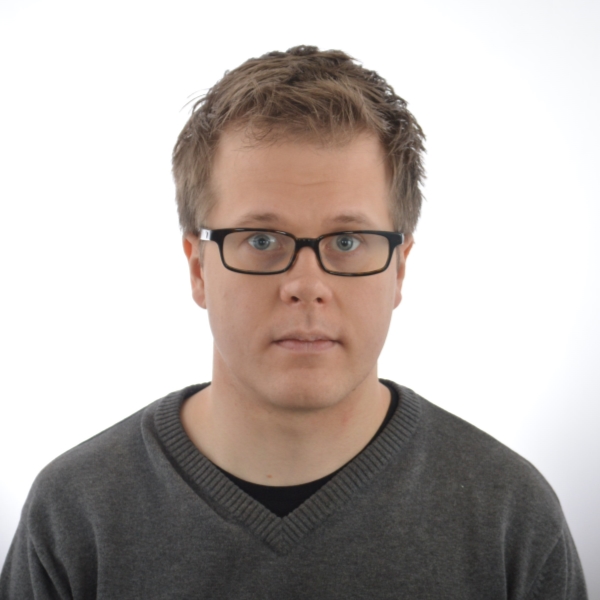
Docent Antti Hyttinen obtained his Master’s degree in Information Technology in Tampere University (of Technology) in 2004 and his PhD in Computer Science in 2013 from the University of Helsinki. His doctoral studies were supervised by Docent Patrik Hoyer. Dr. Hyttinen did research at California Institute of Technology during 2014. Dr. Hyttinen has also obtained the competitive personal post-doc funding from the Academy of Finland (2016). Dr. Hyttinen received the title of Docent in February 2020. Currently, Dr. Hyttinen works as a HIIT Research Fellow in the Sums of Products research group, collaborating with several research groups at the department.
Hyttinen’s research focuses on causal inference and probabilistic graphical models. Dr. Hyttinen has developed theory and structure learning algorithms for several different types of probabilistic graphical models. Many of these are causal models that allow also for latent confounding and feedback. These methods build on many different kinds of techniques such as Branch and Bound, MIP, MaxSAT, ASP, and dynamic programming. In addition, Dr. Hyttinen has developed methods for causal effect identification, experiment selection and combining different types of data sources for the aforementioned tasks.
During 2022, Dr. Hyttinen published papers on particularly in causal effect identification and structure estimation. Dr. Hyttinen lectured the probabilistic graphical models course in the data science master program. He also participated in research and thesis supervision at Ph.D. and M.Sc. levels.
Sample of publications in 2022:
[1] A Hyttinen, VB Pacela, A Hyvärinen. Binary independent component analysis: a non-stationarity-based approach.Proceedings of the 38th Conference on Uncertainty in Artificial Intelligence (UAI 2022), PMLR 180:874–884.
[2] J Leslin, A Hyttinen, K Periasamy, L Yao, M Trapp, M Andraud. A Hardware Perspective to Evaluating Probabilistic Circuits International Conference on Probabilistic Graphical Models, 349-360
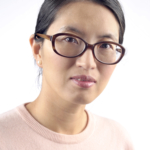
Dr. Xiaoli Liu received her PhD degree in mathematics from the University of Helsinki in December 2017. Her doctoral studies were supervised by Professor Mats Gyllenberg. After graduating she worked as a Postdoctoral researcher in the Biomimetics and Intelligent System Group (BISG) at the University of Oulu. She worked with Prof. Pan Hui’s group as a visiting scholar in 2019 and Polar Electro Oy with collaboration of University of Oulu in 2018. In November 2019, she joined the research group lead by Prof. Sasu Tarkoma in the Department of Computer Science at University of Helsinki as a Postdoctoral researcher. Dr. Xiaoli Liu currently works as a Postdoctoral fellow within Helsinki Institute for Information Technology (HIIT).
Dr. Xiaoli Liu’s research interests focus on distributed systems and edge intelligence, and her participated projects are related to IoT, federated learning, opportunistic learning, differential privacy, 5G and Augmented reality (AR). Dr. Xiaoli Liu has published 19 peer-reviewed journal and conference articles. She publishes papers in top venues, such as IEEE Internet Computing Magazine, IEEE Transactions on Intelligent Transportation Systems, and ACM Transactions on Sensor Networks.
Her recent research in 2021 contains providing solutions for scalable air quality monitoring by combing edge intelligence, 5G, and sensor calibration techniques [1]; utilizing context-aware AR together with 5G edge for path planning [2]; extending the previous Bayesian federated learning research work to have a model cluster instead of assuming a global model; opportunistic learning for air quality monitoring; and proving the feasibility of putting independent Component Analysis (ICA) under the distributed setting. Meanwhile, she also works for two survey papers: outdoor low-cost sensor and sensor calibration for air quality monitoring [3] and COVID-19 in Public Transportation: Transmission Risk, Mitigation and Prevention.
She is actively involved in funding application, workshop organizing, and teaching in 2021, for example, the participated project application “NSF joint call with the collaboration of Yale University” submitted in April 2021 has got the positive decision. She is the course advisor for bachelor thesis in the spring semester and co-teaching Advanced Course in Deep Learning (5cr) for in the autumn semester and she will be the main responsible teacher from 2022. Meanwhile, she serves as a board member of the Junior Faculty Club in University of Helsinki to provides support for PhD students and Postdoctoral researchers
Sample of publications in 2022:
[1] Liu, X., Kortoçi, P., Hossein Motlagh, N., Nurmi, P. & Tarkoma, S., Sep 2022, A Survey of COVID-19 in Public Transportation: Transmission Risk, Mitigation and Prevention In: Multimodal transportation, 1(3).
[2] Hossein Motlagh, N., Loven, L., Cao, J., Liu, X., Nurmi, P., Dustdar, S., Tarkoma, S. & Su, X., Dec 2022, Edge Computing: The Computing Infrastructure for the Smart Mega-cities of the Future In: Computer : a publication of the IEEE Computer Society, 55(12), 54 – 64.
[3] Li, Z., Xiong, G., Wei, Z., Zhang, Y., Zheng, M., Liu, X., Tarkoma, S., Huang, M., Lv, Y. & Wu, C., Aug 2022, Trip Purposes Mining From Mobile Signaling Data In: IEEE Transactions on Intelligent Transportation Systems, 23(8), 13190-13202.
[4] Liu, X., Tamminen, S., Tarkoma, S. & Su, X., 8 Jul 2022, Trustworthy Distributed Intelligence for Smart Cities In: IEEE … International Conference on Data Engineering workshop, 2022, 60-65. https://doi.org/10.1109/ICDEW55742.2022.00013
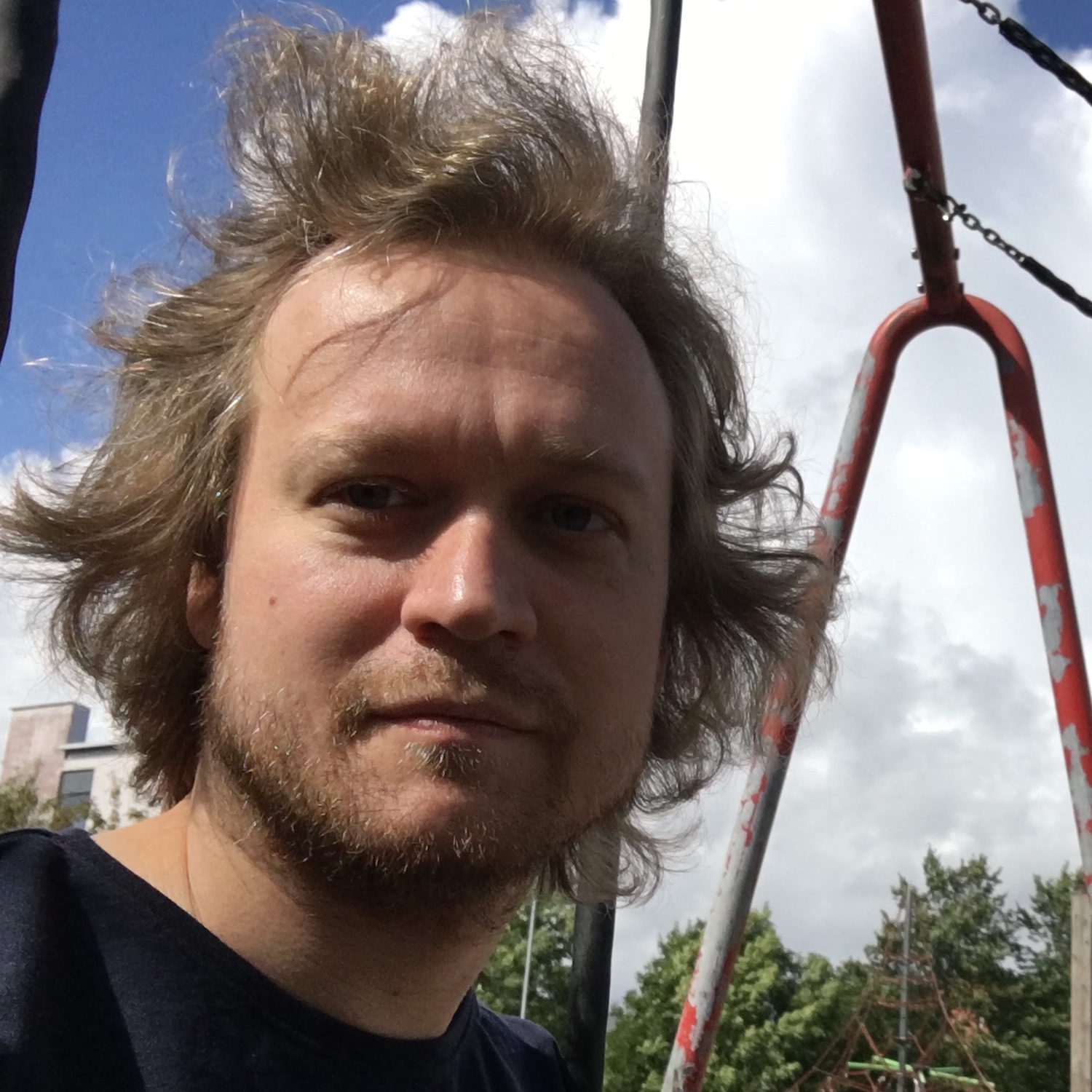
Alan Medlar is a member of the Exploratory Search and Personalization (ESP) research group lead by Prof. Dorota Głowacka. Alan has undergraduate degrees in Computer Science from University College London (UCL), UK and in 2012 was awarded a PhD in Bioinformatics and Genetics from UCL Medical School. After arriving in Finland, he worked as a postdoctoral researcher in Dr Ari Löytynoja’s Evolutionary Sequence Analysis group and in Prof. Liisa Holm’s Bioinformatics group. In 2019, he moved to the Department of Computer Science where he is currently a university researcher and HIIT research fellow.
Alan’s research interests are related to information seeking, interactive systems and user experience. In particular, he is interested in how we can support users performing challenging search tasks, such as exploratory search, and how to model users’ subjective preferences as they relate to interactive systems, such as AI-based systems and video games.
Alan’s recent research in 2022 included work on modelling subjective preferences using critiques [1], novel interfaces for exploratory search of GANs [2], and identifying lexically ambiguous terms in professional discourse [3].
Sample of publications in 2022:
[1] A. Medlar, J. Li, Y. Liu, D. Głowacka. Critiquing-based Modeling of Subjective Preferences. Proceedings of the 30th ACM Conference on User Modeling, Adaptation and Personalization (UMAP) 2022.
[2] Y. Liu, A. Medlar, D. Głowacka. ROGUE: A System for Exploratory Search of GANs. Proceedings of the 45th International ACM SIGIR Conference on Research and Development in Information Retrieval (SIGIR) 2022.
[3] Y. Liu, A. Medlar, D. Głowacka. Lexical Ambiguity Detection in Professional Discourse. Information Processing & Management, 59.5 (2022): 103000.

Leysan’s formal education was a transition from industrial engineering to computer science and later human-computer interaction. She obtained a Master’s degree in Automation and Control systems engineering from Kazan National Technological University, Russia and a Master’s degree in Computer Science from the University of Trento, Italy. During her doctoral studies at the University of Trento, she focused on human factors in digital health systems. In 2019, she obtained a PhD in Computer Science from the University of Trento. Afterwards, she joined the Health Technology Design group at Trinity College Dublin as an ALECS Marie Skłodowska-Curie postdoctoral fellow. In July 2021, she moved to Finland to join Prof. Lindqvist’s Usable Security and Privacy research group as a postdoc at the Computer Science Department at Aalto University.
Leysan’s research is grounded in the discipline of Human Factors with a specific interest in user-centred design and usable security and privacy of socio-technical systems. She explores the challenges and opportunities of designing secure user-centred information systems that respect users’ privacy: from information design and technological support of work practices in place to interaction design and user experience. Her work aims to understand how to achieve a better fit between various stakeholders, organisational context, and technology within the healthcare context and beyond. She mostly employs mixed-method user studies with a focus on qualitative approaches.
Leysan is an action researcher, and since her Master’s, she has been collaborating with software companies such as NearForm, SilverCloud Health, and CBA Group.
Sample of publications in 2022:
[1] L Nurgalieva, S Ryan, A Balaskas, J Lindqvist, G Doherty Public Views on Digital COVID-19 Certificates: a Mixed Methods User Study In CHI Conference on Human Factors in Computing Systems (CHI ’22), April 29-May 5, 2022, New Orleans, LA, USA. ACM, New York, NY, USA 28 Pages.
[2] L Nurgalieva, G Doherty “Privacy and Security in Digital Therapeutics” Editor(s): Nicholas Jacobson, Tobias Kowatsch, Lisa Marsch, Digital Therapeutics for Mental Health and Addiction, Academic Press, 2023.
[3] S Ryan, L Nurgalieva, G Doherty Perceived Fairness Concerns Within Pandemic Response Technology Interacting with Computers (2022).

Hans Moen obtained his PhD degree in Information Technology in 2016. This was a joint degree (cotutelle) between the Norwegian University of Science and Technology and the University of Turku. Afterwards he has worked as a postdoc researcher in the TurkuNLP group at the University of Turku, Department of Computing. Since 2018 he has been funded by the personal postdoc funding from the Academy of Finland. He now works as a HIIT Research Fellow in the Machine Learning for Health (ML4H) group and the Probabilistic Machine Learning (PML) group at Aalto University. He is primarily working in projects focusing on the data from the Hospital District of Helsinki and Uusimaa (HUS), Turku University Hospital (TYKS), and the FinRegistry project.
His main research field is natural language processing (NLP), with a special focus on clinical text (clinical NLP) and other health-related data. A central focus of his research is in utilizing machine learning and language technology to support health care personnel and other users in managing the information documented and stored in electronic health records. The aim is to explore new methods and applications that can ultimately help save time, effort, and resources, to improve the quality of care, and enable new ways of interacting with and generating such information. This work encompasses tasks like free-text search, information classification and extraction, and automatic summarization, where computational semantics and language representations are central focus areas. This work includes the use of (deep) neural networks for textual data, such as recurrent neural networks and transformer-based neural networks.
Moen has been an active member and coordinator in the IKITIK consortium at the University of Turku since 2015. He had a research visit to the Department of Computer and Systems Sciences at Stockholm University in 2021. He has been involved in organizing the Nordic Conference on Computational Linguistics (NoDaLiDa) in 2019 and 2021. He is an active member of the Student and Emerging Professionals Special Interest Group under the International Medical Informatics Association (IMIA SEP SIG), who received the IMIA working group of the year award in 2019 and 2020. He is a regular referee in the “Natural Language Processing” section of the annual IMIA Yearbook.
Sample of publications in 2022:
[1] von Gerich, H., Moen, H., Block, L. J., Chu, C. H., DeForest, H., Hobensack, M., Michalowski, M., Mitchell, J., Nibber, R., Olalia, M. A., Pruinelli, L., Ronquillo, C. E., Topaz, M. & Peltonen, L-M., Mar 2022, Artificial Intelligence -based technologies in nursing: A scoping literature review of the evidence In: International journal of nursing studies. International journal of nursing studies, 127, [104153].
[2] Moen, H., Suhonen, H., Salanterä, S., Salakoski, T. & Peltonen, L. M., 25 May 2022, Clustering Nursing Sentences-Comparing Three Sentence Embedding Methods in Challenges of Trustable AI and Added-Value on Health – Proceedings of MIE 2022 (pp. 854-858). (Studies in Health Technology and Informatics; Vol. 294).
[3] Uronen, L., Salantera, S., Hakala, K., Hartiala, J. & Moen, H., Apr 2022, Combining supervised and unsupervised named entity recognition to detect psychosocial risk factors in occupational health checks In: International Journal of Medical Informatics, 160, [104695].

Dr. Taneli Pusa obtained his Master’s degree in Applied Mathmatics from the University of Helsinki in 2015 and his PhD in Bioinformatics from the University of Lyon in 2019. During his PhD he was co-supervised by Marie-France Sagot and Alberto Marchetti-Spaccamela. He completed a postdoc at the Luxembourg Centre for Systems Biomedicine (LCSB) at the University of Luxembourg in 2020. He joined Juho Rousu’s Kernel Methods, Pattern Analysis and Computational Biology (KEPACO) group in May 2021 as a postdoctoral fellow.
Taneli’s research interests focus on the combination of mathematics, computer science, and biology. In his research on metabolic networks, he focuses on their integration with ‘omics data. Currently, he is collaborating with the Suomalainen-Wartiovaara lab at the University of Helsinki which studies different health related factors and their possible influence metabolism. Concurrently, Taneli contributes to the COBREXA software project which is a toolbox for next-generation metabolic modelling.
Sample of publications in 2022:
[1] COBREXA.jl: constraint-based reconstruction and exascale analysis Bioinformatics, 38(4): 1171–1172.
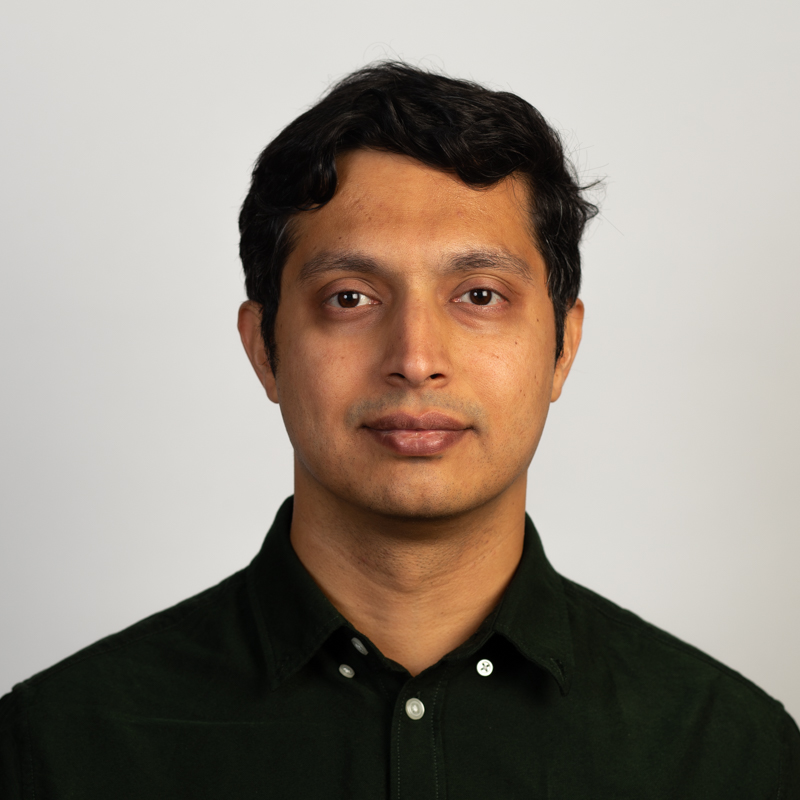
Ashwin Rao obtained his master’s degree in Information Technology in 2009 from the Indian Institute of Technology Delhi, and his PhD in Informatique (Computer Science) in 2013 (thesis defended in 2013 at Inria and certificate awarded in 2015) from University of Nice Sophia Antipolis, France. His doctoral studies were supervised by Professor Walid Dabbous and Professor Arnaud Legout. After graduating he arrived in Finland in July 2014 and has been a post-doctoral researcher since. He received the title of Docent from the University of Helsinki in September 2020.
He is actively teaching at the university, for example, co-supervising Bachelor’s, Master’s, and PhD theses. As of April 2021, he has co-supervised 1 PhD student, 10 Masters Students, and co-hosted research visits of 2 PhD students. More information about his research activities can be found on his webpage.
His research interests are in the area of distributed systems and networking, and his projects have touched mobile networks, video streaming, peer-to-peer communication, wireless networks, privacy and security issues, and recently operating system architectures. His research works are heavily systems-oriented, and they involve building systems for conducting large-scale measurement studies, analyzing the results, and addressing the issues identified.
His current research is along the following two interrelated threads.
1. Parallelism for high-performance computing. This work focuses on building an operating system which can be leveraged for I/O-intensive parallel tasks. It is motivated by the fact that the OS kernel needs to be bypassed for I/O operations because CPU speeds have stagnated while I/O speeds are increasing.
2. Multi-connectivity. Our devices use static rules for selecting the communication interface to use, and this work is focused on addressing this shortcoming and enabling the devices to coordinate with the network controllers managing the network functions in the network.
He received the title of Docent in September 2020. He helped organize two webinars on Edge Intelligence which had an audience of more than 50 people. He co-authored two research proposals, a) IDEA-MILL that received a 3-year funding from the Academy of Finland with Prof. Sasu Tarkoma, and b) Lean6G that received a 3 year funding with Prof. Sasu Tarkoma and Prof. Leandros (Yale University). In 2021, he also taught one Masters level courses: Networked Systems and Services (5 cr) and 1 student submitted a PhD thesis under his co-supervision.
Sample of publications in 2022:
[1] Hoque, M. A., Finley, B., Rao, A., Kumar, A., Hui, P., Ammar, M. & Tarkoma, S. Context-driven encrypted multimedia traffic classification on mobile devices. in Pervasive and Mobile Computing. 88: 2023, 101737.
[2] Hätönen, S., Rao, A. & Tarkoma, S., 21 Jan 2022, Programmable Session Layer MULTI-Connectivity In: IEEE Access, vol. 10: 5736-5752, 2022.
[3] Enberg, P. J., Rao, A., Crowcroft, J. & Tarkoma, S., Sep 2022, Transcending POSIX: The End of an Era?
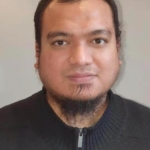
Martha Arbayani Zaidan obtained his Master’s degree in Control Systems in 2009 and his Ph.D. in Automatic Control and Systems Engineering in 2014, both from the University of Sheffield, UK. His doctoral study was conducted at Rolls-Royce University Technology Center for control and systems monitoring, supported by Rolls-Royce plc. He then worked as a Postdoctoral Research Associate (2014-2015) at Maryland University at College Park, US, and as a Postdoctoral Research Fellow (2015-2017) at Aalto University, Finland. From 2017, he has joined Institute for Atmospheric and Earth System Research (INAR) at University of Helsinki. He received the title of Docent in Atmospheric and Environmental Data Science in 2020. In between 2021 and mid-2022, Dr. Zaidan served INAR as a Research Associate Professor at Nanjing University, China. On July 2022, he has returned to University of Helsinki to work as a HIIT Research Fellow funded by HIIT and INAR. In his current role, he works on developing data science and machine learning methods for various applications in sensing systems, atmospheric and environmental sciences.
Dr. Zaidan’s general research interests are in applied artificial Intelligence and machine learning (e.g., fuzzy logic, artificial neural networks and deep learning, Bayesian techniques, Recursive Bayesian estimations, Kernel machines, sampling methods, inference approximations, self-organizing maps, etc.), health monitoring technologies (e.g., feature extractions, diagnostics, prognostics), intelligent control systems and systems identification. The applications include various engineering and scientifical systems including bio-medical robotics, twin rotor dynamics, aircraft gas turbine engines, applied physics, geoinformatics, atmospheric and environmental sciences as well as other intelligent engineering systems.
In 2022, Dr. Zaidan publications are mainly in the topics of automating scientifical data analysis, intelligent sensor calibration and virtual sensors. In his current role, Dr. Zaidan also delivers lectures in the courses of Statistical Analysis for Environmental Field Measurements and Environmental Data Sciences. He has also participated actively in various research projects and thesis supervision for Ph.D. and summer intern students.
Sample of publications in 2022:
[1] M.A. Zaidan, N.H. Motlagh, P.L. Fung, A.S. Khalaf, Y. Matsumi, A. Ding, S. Tarkoma, T. Petäjä, M. Kulmala, and T. Hussein. Intelligent air pollution sensors calibration for extreme events and drifts monitoring. IEEE Transactions on Industrial Informatics, 19(2):1366–1379, 2023.
[2] M.A. Zaidan, Y. Xie, N.H. Motlagh, B. Wang, W. Nie, P. Nurmi, S. Tarkoma, T. Petäjä, A. Ding, and M. Kulmala. Dense air quality sensor networks: Validation, analysis, and benefits. IEEE Sensors Journal, 22(23):23507–23520, 2022.
[3] P. Su, J. Joutsensaari, L. Dada, M.A. Zaidan, T. Nieminen, X. Li, Y. Wu, S. Decesari, S. Tarkoma, T. Petäjä, M. Kulmala, and P. Pellikka. New particle formation event detection with Mask R-CNN. Atmospheric Chemistry and Physics, 22(2):1293–1309, 2022.